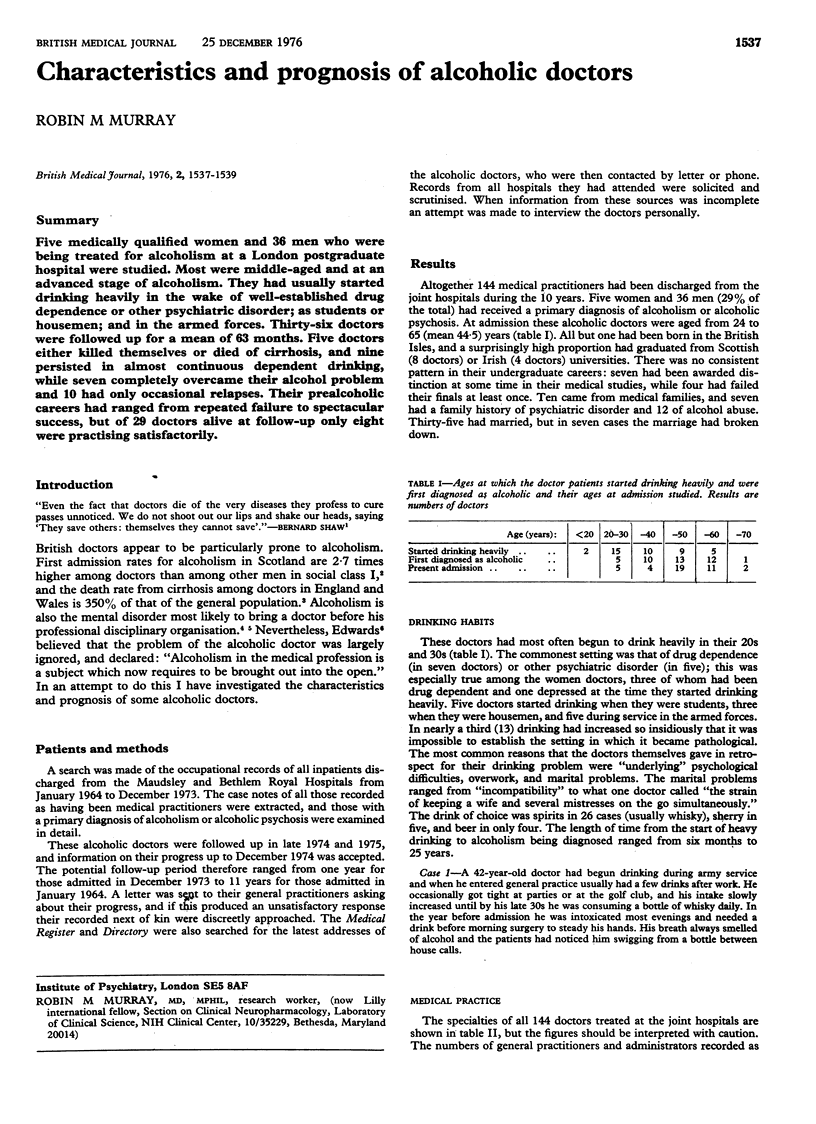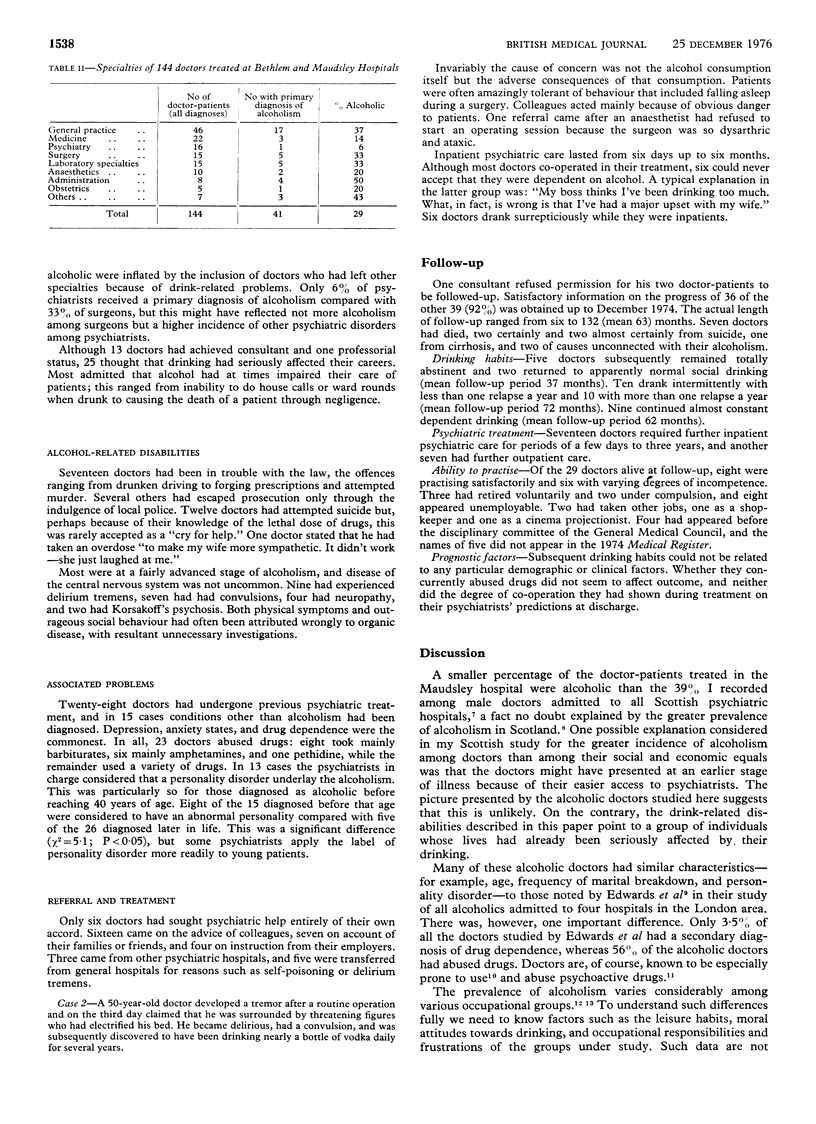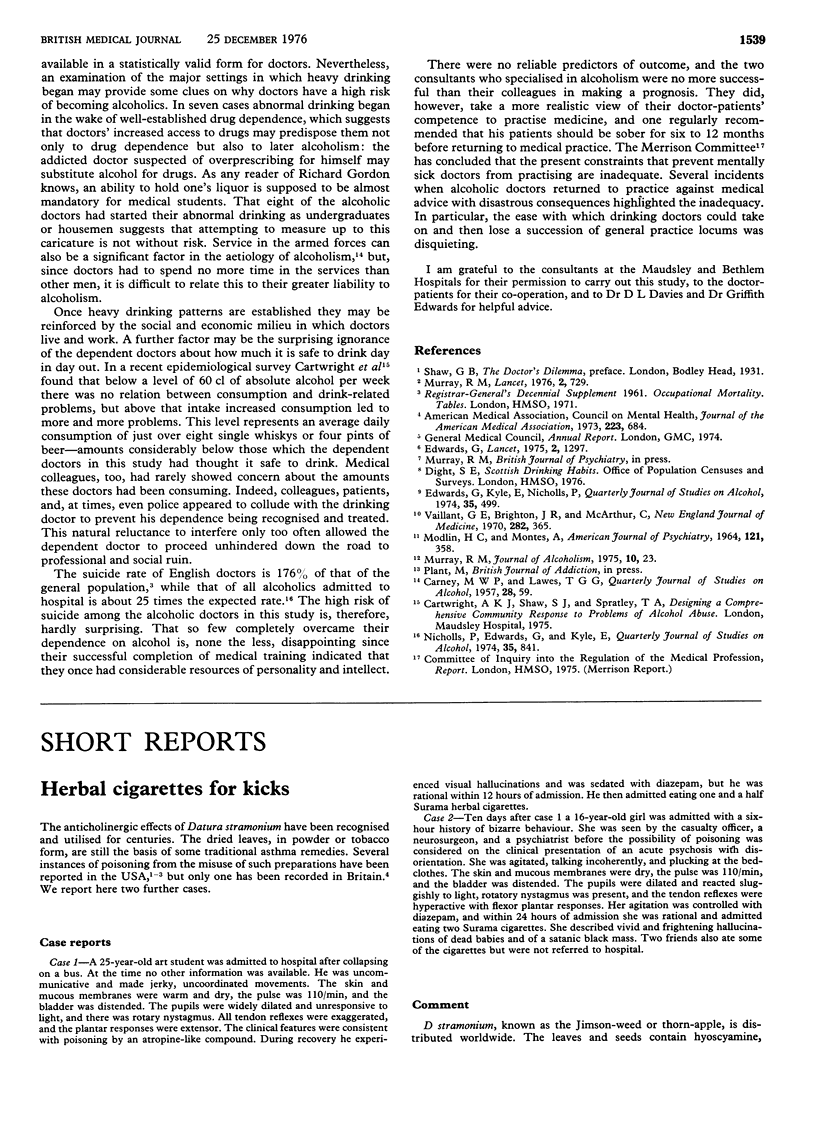Abstract
Five medically qualified women and 36 men who were being treated for alcoholism at a London postgraduate hospital were studied. Most were middle-aged and at an advanced stage of alcoholism. They had usually started drinking heavily in the wake of well-established drug dependence or other psychiatric disorder; as students or housemen; and in the armed forces. Thirty-six doctors were followed up for a mean of 63 months. Five doctors either killed themselves or died of cirrhosis, and nine persisted in almost continuous dependent drinking, while seven completely overcame their alcohol problem and 10 had only occasional relapses. Their prealcoholic careers had ranged from repeated failure to spectacular success, but of 29 doctors alive at follow-up only eight were practising satisfactorily.
Full text
PDF


Selected References
These references are in PubMed. This may not be the complete list of references from this article.
- Edwards G., Kyle E., Nicholls P. Alcoholics admitted to four hospitals in England. I. Social class and the interaction of alcoholics with the treatment system. Q J Stud Alcohol. 1974 Jun;35(2):499–522. [PubMed] [Google Scholar]
- Edwards G. The alcoholic doctor. A case of neglect. Lancet. 1975 Dec 27;2(7948):1297–1298. [PubMed] [Google Scholar]
- Murray R. M. Alcoholism amongst male doctors in Scotland. Lancet. 1976 Oct 2;2(7988):729–731. doi: 10.1016/s0140-6736(76)90021-0. [DOI] [PubMed] [Google Scholar]
- Nicholls P., Edwards G., Kyle E. Alcoholics admitted to four hospitals in England. II. General and cause-specific mortality. Q J Stud Alcohol. 1974 Sep;35(3):841–855. [PubMed] [Google Scholar]
- Vaillant G. E., Brighton J. R., McArthur C. Physicians' use of mood-altering drugs. A 20-year follow-up report. N Engl J Med. 1970 Feb 12;282(7):365–370. doi: 10.1056/NEJM197002122820705. [DOI] [PubMed] [Google Scholar]


